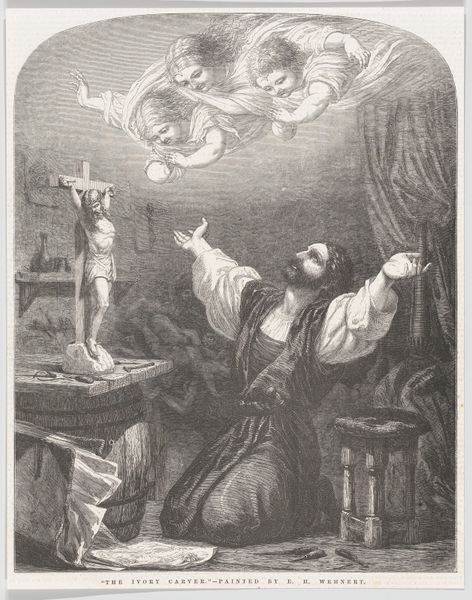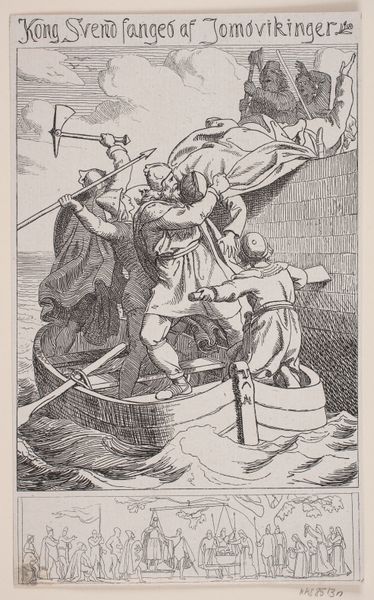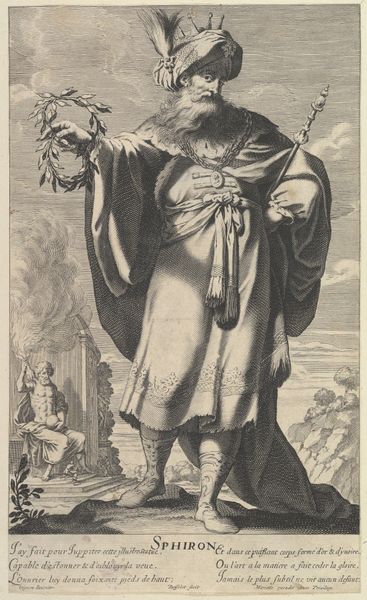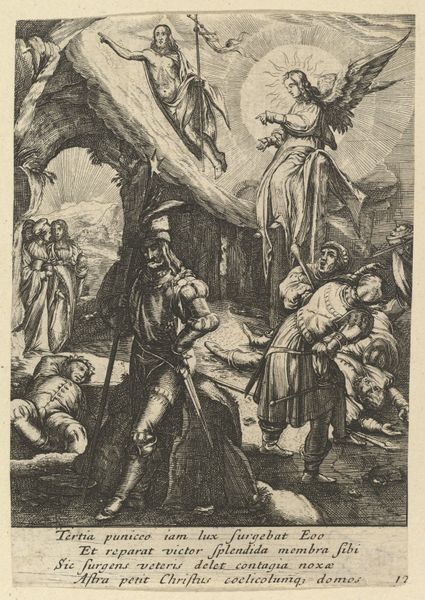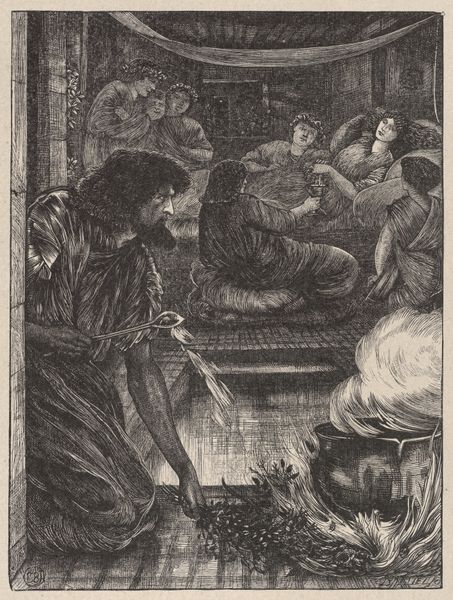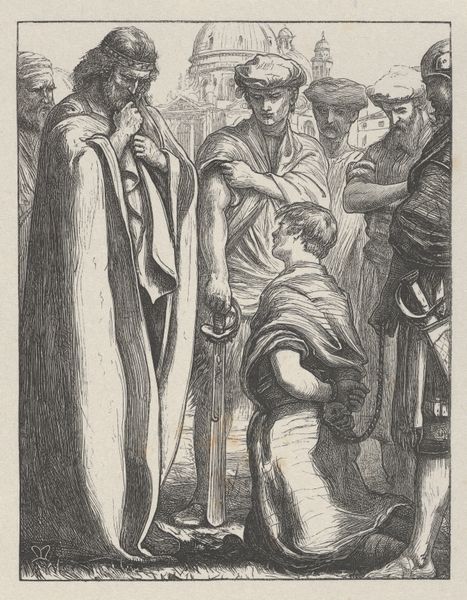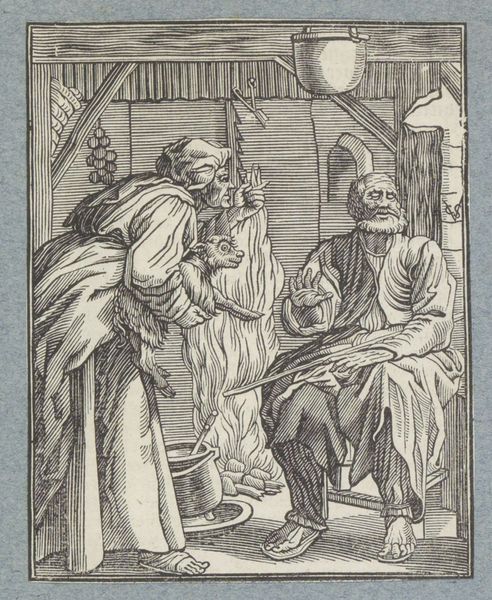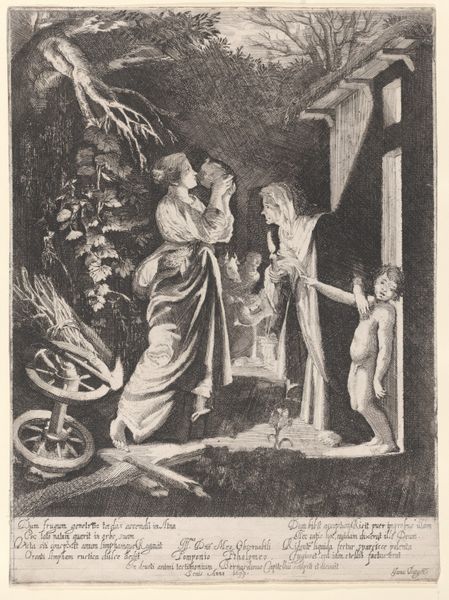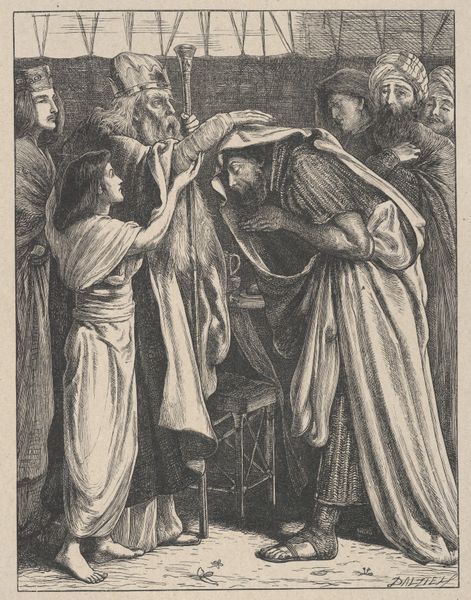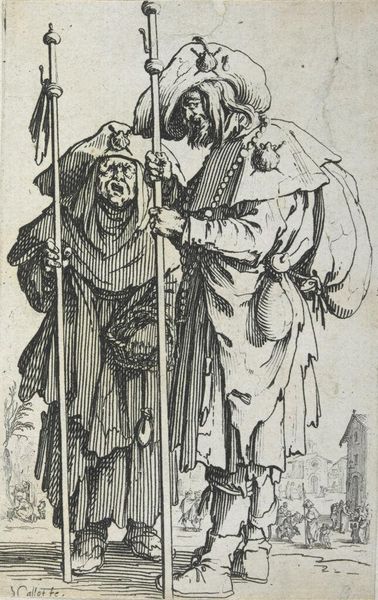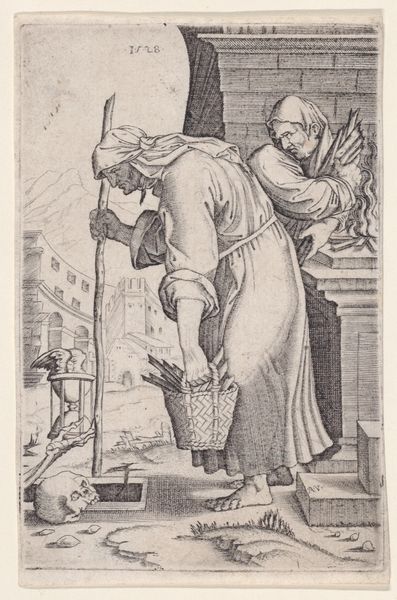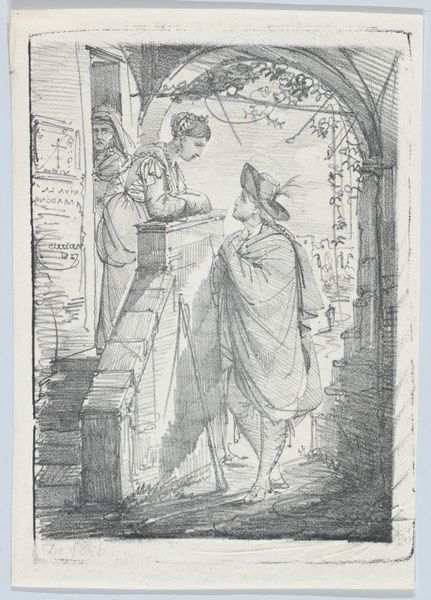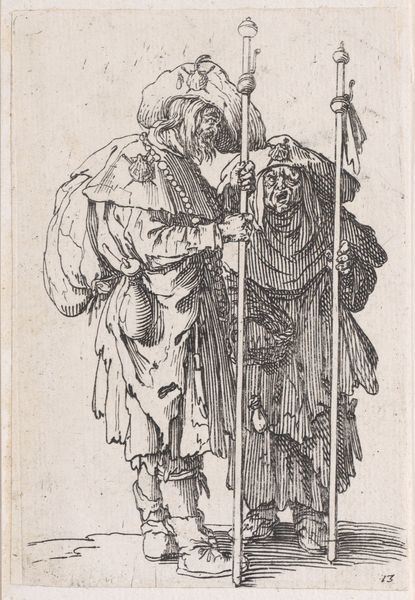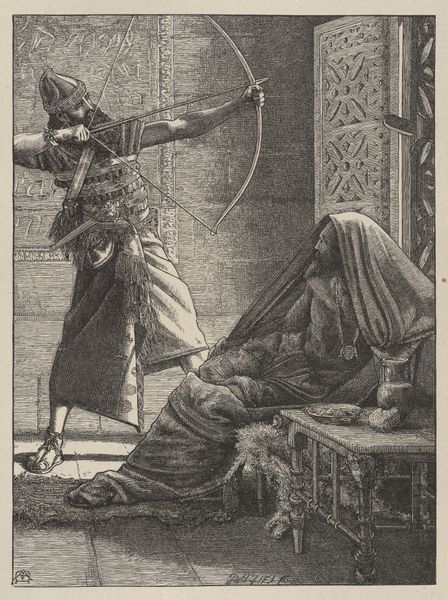
Elijah and the Widow's Son, from "Dalziels' Bible Gallery" 1865 - 1881
0:00
0:00
drawing, print
#
drawing
#
mother
#
quirky sketch
# print
#
pen sketch
#
pencil sketch
#
boy
#
junji ito style
#
cartoon sketch
#
personal sketchbook
#
sketchwork
#
pen-ink sketch
#
men
#
sketchbook drawing
#
sketchbook art
Dimensions: Image: 9 in. × 5 13/16 in. (22.8 × 14.7 cm) India sheet: 10 15/16 × 7 11/16 in. (27.8 × 19.6 cm) Mount: 16 7/16 in. × 12 15/16 in. (41.8 × 32.8 cm)
Copyright: Public Domain
This print by Ford Madox Brown depicts the prophet Elijah returning a widow's son to life, a tale laden with symbols of despair and hope. Observe the widow, hands clasped in fervent prayer, her face etched with anguish—a universal symbol of maternal grief and desperation. Note the stark contrast with Elijah, a figure of divine authority, as he descends the steps, the resurrected boy in his arms. The child, adorned with a wreath, evokes images of sacrificial offerings and rebirth, harking back to ancient rituals of life and death. These symbols echo through time, resurfacing in diverse cultural contexts, from pagan rites to Christian iconography, each carrying a residue of collective memory. Consider the psychological weight of this image—the primal fear of loss juxtaposed with the hope of redemption—a potent force engaging viewers on a deep, subconscious level. The symbols of death and resurrection are eternally recurring motifs. Their evolution, adaptation, and cyclical recurrence reflect the human psyche's enduring quest to grapple with mortality and the ephemeral nature of existence.
Comments
No comments
Be the first to comment and join the conversation on the ultimate creative platform.
